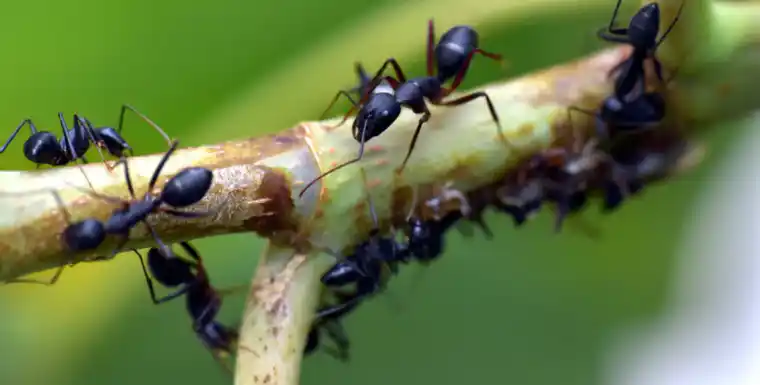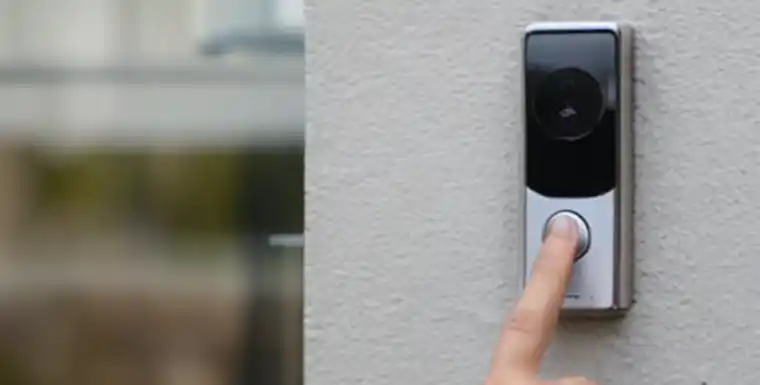Worried that ants might be up to no good in your yard? Well, you're in the right place. It's time to delve into the nitty-gritty of how ants in the garden can be both boon and bane. In the next few minutes, you'll learn how to identify these creatures, the roles they play, and most importantly, how to smartly deal with them. That's right! By the time you finish reading, you'll know exactly how to remove ants from your garden or lawn - the clever way.

Quick Links
Ants: Garden Heroes or Unwanted Pests?
Imagine, for a moment, you're hosting a party at your home. You've got different people bringing different things to the table. Some are amazing cooks, some bring life to the party with their stories, while others might have the knack for cleaning up. Now, ants in your garden are somewhat similar. They're all about the give and take, just like your guests.
The Hidden Benefits of Ants
Ever caught yourself wondering, "Are ants good for my garden?" Well, you're about to be pleasantly surprised:
- Soil Aeration: Do you know how aerating your lawn can make it healthier? Well, guess who’s doing that job for you? That's right, the ants! Their ceaseless tunnelling allows water and nutrients to soak deep into your garden's soil. They're like your unseen garden helpers, tirelessly improving soil health while asking for nothing in return. Now that’s what we call ‘gardening smart’, don't you agree?
- Natural Composting: If ants were superheroes, their superpower would be turning waste into riches! They break down organic matter, recycling nutrients back into the soil. Think about it - it's nature's own recycling system, right there in your garden.
The Downsides of Ants
Of course, every coin has two sides, and the ant situation is no different. So let's put on our investigative hats and look at the other side of the story.
- Destructive Behavior: Just like that one guest who always seems to break something at the party, some ants, like the red variety, can be destructive. Their tunneling can get out of hand, leading to issues in your lawn and garden. And if they decide to explore, they might even find their way into your home.
- Symbiotic Relationship with Pests: Ever heard the phrase 'thick as thieves'? That's how some ants and aphids operate. The ants protect aphids from predators, allowing these pests to multiply and cause damage to your beloved plants. Not exactly the neighborly relationship you'd want in your garden, is it?
- Potential Harm to Humans and Pets: Ant bites can be more than just a nuisance, particularly for those with allergies. And let's not forget about our furry friends – some ants can pose a threat to dogs and cats too.
So, should you kill ants or let them be? The answer may not be that simple, and it depends on many factors. But don't worry – weather you want to merely control them or rid them from your yard entirely, we’ve got you covered.
The Art of Smart Ant Control: Your Comprehensive Guide
So, now that we've got the lay of the land, how can you effectively manage ants in your garden without causing an ecological disaster? It's time to roll up your sleeves and step into your new role as a master of ant control.
We're not about to suggest you launch an all-out war against these tiny garden dwellers. Instead, we're going to introduce you to a set of smart methods, each designed to bring balance back to your garden. Let's get down to business, shall we?
1) Watering – The Gentle Deterrent
Ever notice how ants seem to prefer dry conditions? That's because they do. Regular, consistent watering creates a moist environment that ants find less appealing, persuading them to move elsewhere. But how often and how much should you water? Every garden is different, but a good rule of thumb is to water enough to keep the soil moist, not waterlogged. Remember, our goal in this case is to encourage ants to relocate, not drown them out. Consistent watering can be an effective first step in how to get rid of ants outside your home, while simultaneously promoting healthier plant growth. Smart and simple, right?
2) Harness the Power of Plants – Herbs and Spices as Ant Repellents
Nature has a fantastic way of keeping things in balance, and that includes providing natural ant repellents. Planting certain herbs and spices, such as garlic, thyme, and mint, not only adds a delightful aroma and diversity to your garden, but also deters ants. Looking for a quick fix? A sprinkle of cayenne powder or black pepper around your garden can serve as an ant repellent too. Bonus: These spices are likely already in your kitchen. So here's an eco-friendly, pantry-to-garden solution for ant control.
3) Ant Baits and Ant Killer Products – The Directed Strike
Navigating the world of ant control products can be a bit like walking through a maze, just remember the choice of how extensively to use these is entirely in your hands. There are numerous ant baits and ant killer products available, each with their unique benefits.
If you're looking to significantly reduce an overwhelming ant population, these products can indeed be an effective tool. They're designed to appeal to ants, who carry the bait back to the colony, thus addressing the root of the problem.
But here's the important part: these products should always be used responsibly and as directed on the label. They're potent stuff and aren't picky about which insects they affect. They could potentially impact beneficial insects too, tipping that delicate garden balance we've been talking about.
4) Diatomaceous Earth – Nature's Ant Control
This natural, non-toxic powder comes from a fascinating source: fossilized aquatic microorganisms called diatoms. But what makes it an ideal ant deterrent in your garden?
When ants come into contact with diatomaceous earth, it damages their exoskeletons and leads to dehydration, making it an effective yet gentle solution to an ant problem. It's like creating an invisible barrier that ants simply don't want to cross.
You'll want to sprinkle diatomaceous earth in areas of your garden where you've noticed ants marching about. Rest assured, this powdery substance is safe for humans and pets, so you won't need to worry about little hands, paws, or snouts getting into it.
5) Vinegar – The Quick Fix with a Caveat
Quick and readily available, vinegar can indeed kill ants on contact, making it a handy tool in your ant control toolbox. But there's a catch: vinegar is more of a band-aid than a cure. While it may deal with the ants right in front of you, it doesn't solve the larger issue – the bustling ant colony beneath your garden. Like a pesky weed, unless you address the root, the problem will keep coming back.
Another point to note is that while vinegar is pretty harmless to us, it's not quite so friendly to your plants. Its acidity can harm plant leaves, so if you decide to use it, do so sparingly and cautiously. Think of vinegar as the first-aid kit in your garden – useful for immediate relief, but not a long-term solution.
6) Boiling Water – The Drastic Measure
Imagine this scenario: despite all your efforts, the ant population in your garden is flourishing to the point of disruption. You've tried everything in your arsenal, and you're still seeing those pesky ant trails snaking through your yard. Maybe they're even invading your home. In such situations, boiling water might be considered as your emergency exit.
Pouring boiling water directly into an ant nest can rapidly disrupt the colony and put a significant dent in the ant population. It's a drastic measure, and much like calling in a last-minute rescue when all else has failed, it should only be considered for severe infestations.
However, it's crucial to be aware of the potential drawbacks of this method. Boiling water is not selective; it can harm beneficial garden insects and damage plant root structures, turning your lush, green oasis into a patch of sorry-looking plants.
Final Thoughts
Armed with these strategies, you are now well-equipped to handle an ant issue in your garden. Remember, Rome wasn't built in a day and your ant problem won't disappear overnight. Patience, persistence, and a balanced approach are the keys to successfully managing ants in your garden.
It's essential to weigh your desire for an ant-free garden against the broader impact on your garden's ecosystem. It's your yard, and the decision is yours – whether you're looking for strict control or full eradication. Of course, your goal isn't to transform a flourishing garden into an insect-free wasteland, but rather to cultivate a place where your plants thrive and excessive pests are kept in check. Because, at the end of the day, your garden should be your oasis of balance and beauty.




